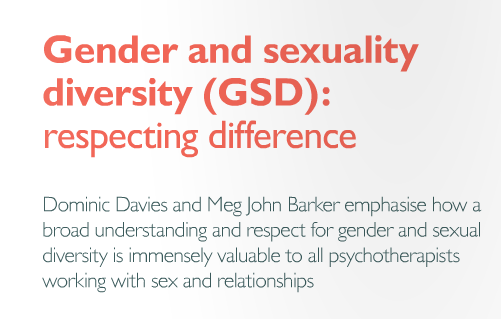It’s a good exposition of the voices that continue to be heard about the lifestyle of certain gay men, and how they are pushed to conform (more completely) to standard societal ideals. It rightly objects to that. In the words of one of its best passages,
I believe sex is a gift that allows us to connect with others (and ourselves) for a night, for a lifetime or just for 25 minutes during our lunch break. I believe sex and pleasure are nothing short of magical and transformative. > And I refuse to believe that just because queer people are increasingly being folded into the mainstream, we should give up fighting for all of the things we’ve been fighting for all these years.
I think these are wise words, and wish they were taken to heart widely. I think they can be reflected on just as usefully for others than gay men only. There is the persistent spectre raised since the early 1990s of “sex addiction”. However often this has been debunked, it continues to be proposed - for reasons best known to the people pushing it.
Sex addiction is not feared for gay men only, but for everyone, gay, straight, bi, queer, cis, male, female, or other. A different article, with a more academic background, is the book chapter ‘The Challenging Landscape of Problematic Sexual Behaviors, Including “Sexual Addiction” and “Hypersexuality”’, by sex educator and psychoanalyst Paul Joannides, republished in Psychology Today.
That article deals with essentially the same subject, but puts it in a sexuality- and gender-neutral context. Joannides covers a great deal of ground. Some topics he discusses are:
- querying the pathology narrative
- 12-step programs
- the idea of “excessive” or “compulsive” masturbation
- “nymphomania”
- the demonisation of sex work
- the fear and condemnation of (Internet) pornography
- the Christian- or religion-inspired trope of sex as “dirty”
- the focus on orgasm
- sexual desire discrepancies generally
It is an article written by a clinician, in rather clinical language, and mainly addressed to sex therapists, counsellors and other clinical or non-clinical practitioners. With that slight reservation, I believe there is a great deal of value in it, and it is useful for who is prepared to read at a greater level of complexity and nuance than a newspaper article can afford.
The full reference to Joannides’ article:
Joannides, P. (2012). The Challenging Landscape of Problematic Sexual Behaviors, Including “Sexual Addiction” and “Hypersexuality”. In P.J. Kleinplatz (Ed.), > New Directions in Sex Therapy: Innovations and Alternatives. 2nd Ed> New York: Routledge.







